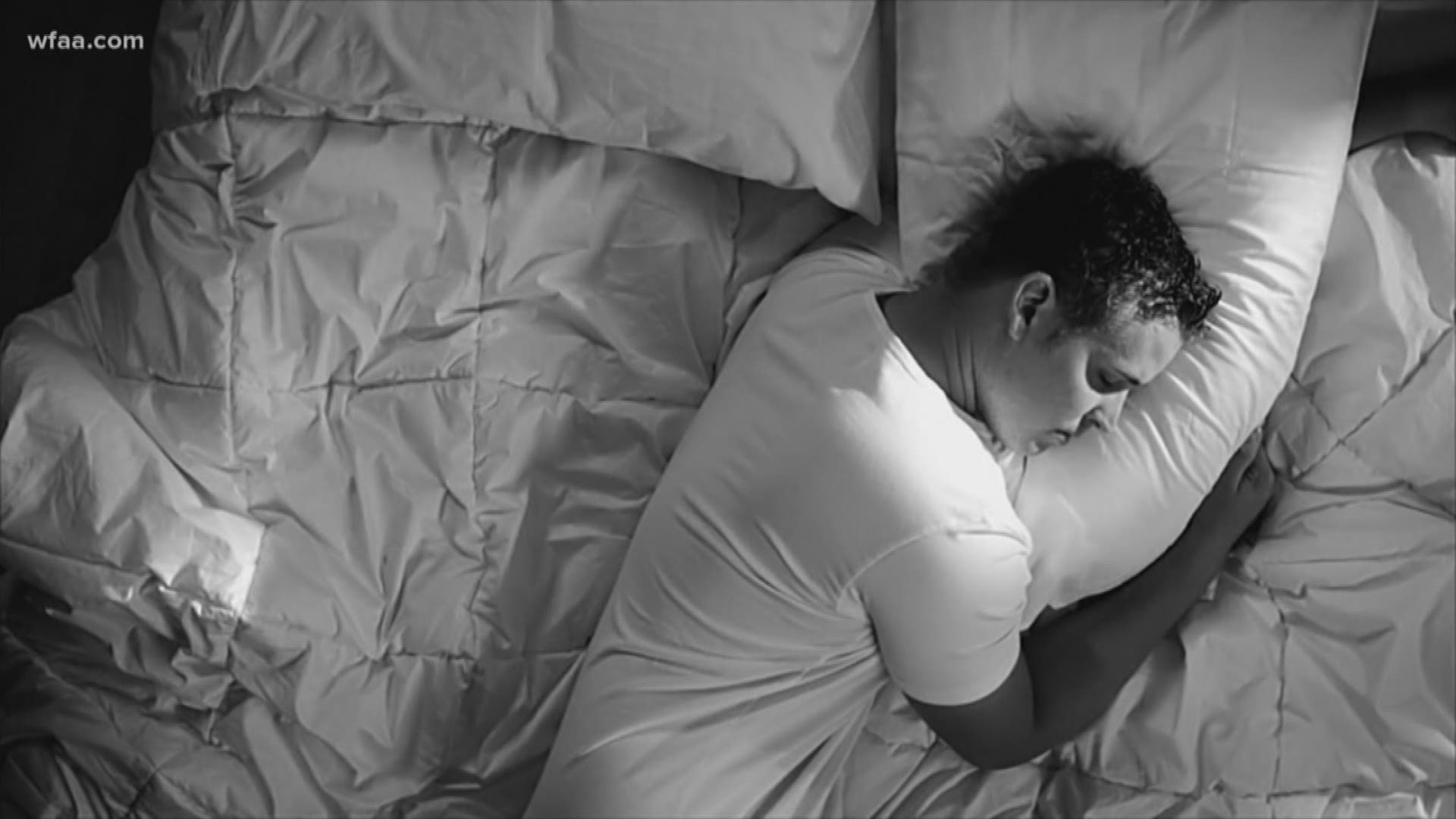DALLAS — There are many people complaining about experiencing problems sleeping, right now.
People are discussing irregular sleep patterns on social media posts, in chats among friends, and with their doctors.
Dr. Safisha Hill said, "I’m already a night owl.”
Hill is a college professor who typically stays up late. However, recently, her sleep patters have been off sync.
Hill explained, "My sleep pattern is really off, and almost everyone that I know has expressed the same thing.”
Like some others, Hill says getting a solid night’s sleep has been a problem, especially since communities have been dealing with the domino effects of the coronavirus pandemic.
Businesses are closing. People are stuck at home. Bills are due. There is a lot on everyone’s mind.
Doctor Waleed El-Feky said,"It’s almost like a perfect storm.”
El-Feky works with Texas Neurology. His team is busy answering sleep related calls.
Doctor David Winter with Baylor Scott & White Health is also seeing an increased volume of calls.
"The most common cause of sleep disorders is anxiety and stress. That’s what we’re seeing right now. So, I’m not surprised that many people are having difficulty sleeping," said Winter.
The doctors say among some of the factors impacting sleep problems include losing out normal daily routines.
"Make your day as scheduled as possible going from one task to the other," Dr. El-Feky said.
The doctors say exercising a few hours before hitting the sack, could help.
"Exercise actually burns up those compounds that develops in our body when we don’t sleep well,” Dr. Winter explained. “When we are anxious, when we are stressed.”
If you are stuck indoors all day, consider opening the blinds.
”Expose yourself to light,” Dr. El-Feky said. “Light is very important. It’s a very important signal to the brain to know when is wake time.”
The doctors suggest avoiding heavy meals, alcohol, and caffeine before going to bed. They also advise not doing work in bed, and try limiting cellphone use and watching TV in bed.
Dr. Winter said, "An hour or so before bed, you want to do things that let you unwind. Soft music, some light fictional reading, perhaps.”
The doctors say over-the-counter sleep aids may help. However, the doctors warn those medicines should be used as directed.

